March 30 was a quiet night on the MTSU campus, as many students, faculty and staff continued adjusting after the first week of switching to remote learning to finish out the spring semester in wake of the coronavirus outbreak.
However, following the social distancing guidelines by public health experts couldn’t contain the excitement filling the virtual air on a Zoom videoconferencing event hosted by MTSU Intercultural and Diversity Affairs, Confucius Institute, Center for Chinese Music and Culture and Asian Student Association.
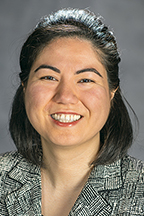
Kelly Hill
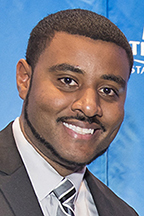
Daniel Green
The event, titled “COVID-19, Public Health, Social Stigma & Racism: A Critical Conversation,” resulted in a 90-minute conversation with students, faculty and community members being welcomed into a virtual room for an interdisciplinary, intercultural and International learning experience.
In all, 104 unique users — primarily students — connected to the event with questions, with at least 17 faculty and staff joining in for the conversation.
“This dialogue drew participants from as many parts of the MTSU community as possible to exchange information face-to-face virtually, share personal stories and experiences, honestly express perspectives, clarify viewpoints, and develop solutions to our community concerns,” said Daniel Green, director of Intercultural and Diversity Affairs.
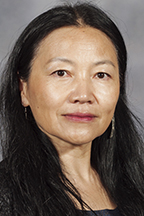
Dr. Mei Han
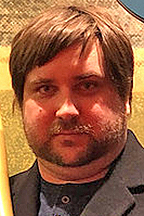
Dr. Douglas Allen
The conversation was facilitated by Green and Kelly Hill, outgoing Power of ONE prevention coordinator at MTSU, with panelists including Bing Nan Li, a former multimedia lecturer at MTSU, currently based in Lanzhou, China; Mei Han, director of Center for Chinese Music and Culture; Doug Allen, a lecturer in Global Studies and Human Geography; Kahler Stone, assistant professor of public health and epidemiology; Lisa Schrader, director of MTSU Health Promotion at MTSU; and Yvonne Chen, a sociology doctoral student at Vanderbilt University.
“The conversation exemplified our university’s values for interdisciplinary, cross-cultural and international learning and dialogue,” said Hill.
The conversation flowed organically throughout the night, with topics ranging from public health statistical models to social stigma and institutionalized racism experienced by Asian Americans in the United States amid the nation’s response to the current public health crisis, which began in Wuhan, China.
“As we strive to improve conversations about race, racism, and racial justice in this country, the environment in which we’re speaking seems to be constantly shifting,” Green noted. “Yet these conversations are more important than ever, especially during this pandemic where Asian Americans are facing violence against them due to ignorance, and a lack of knowledge about COVID-19.”
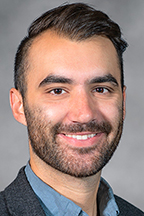
Dr. Kahler W. Stone

Lisa Schrader
“The use of racist terms to refer to COVID-19 obscures and exacerbates the institutional failures and social safety gaps we’ve allowed in our local, national, and global systems,” Allen said. “While the virus may not discriminate, the losses and suffering from this virus will not be even. Our society has marginalized and impoverished many while privileging others. That inequality and unevenness of suffering is our doing, not the viruses.”
While much of the conversation focused on uncertainty and the daunting reality of the public health crisis, panelists also left the audience members with an outlet for action and hope.
“The same 5 D’s (Direct, Delegate, Distract, Delay and Document) that Power of One promotes to address gender-based violence can also be used to address racism, and more subtle institutionalized forms of discrimination,” stated Hill. “It’s up to us to ‘Be The One’ to stand up against any and all forms of violence, even and especially, during times of crisis, when people are more vulnerable.”
Han said the role of Center for Chinese Music and Culture “has always been to bridge cultures and connect people.”
“While dealing with many challenges that COVID-19 has brought to the world, we need to help each other, learn to understand each other, and to see the best of each other,” she said.
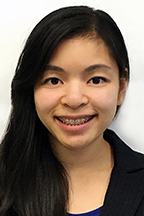
Yvonne Chen
Schrader, the director of Health Promotion, said it’s important for the university to continue sharing information about available student health services, including the ability to still connect with health staff remotely to ask questions and express concerns.
“I really appreciate Kelly and Daniel setting up this discussion, and I’m thankful we have technology that allows us to have such deep discussions with our students even when we can’t physically be in a space together,” said Schrader. “I hope participants left with, among other things, a better sense of how the university can still assist students with their physical and mental health needs during this time of uncertainty.”
Updated and archived information about MTSU’s ongoing response to the coronavirus pandemic can be found online at www.mtsu.edu/coronavirus.
— Submitted by Kelly Hill, outgoing Power of One prevention coordinator, and Daniel Green, director of the Office of Intercultural and Diversity Affairs

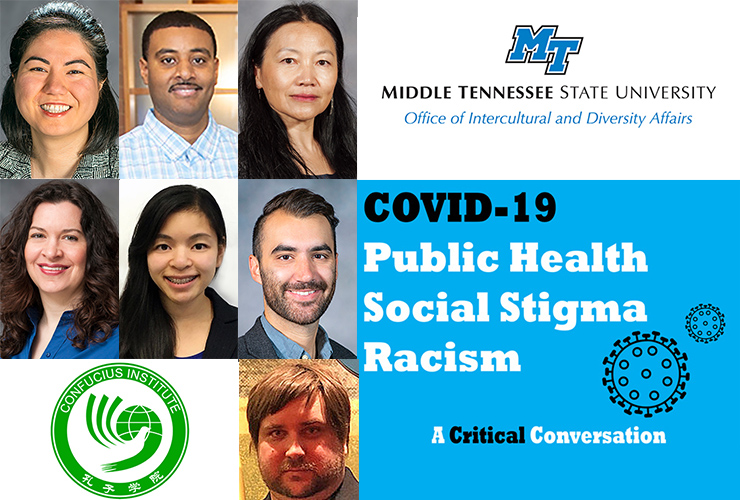
COMMENTS ARE OFF THIS POST